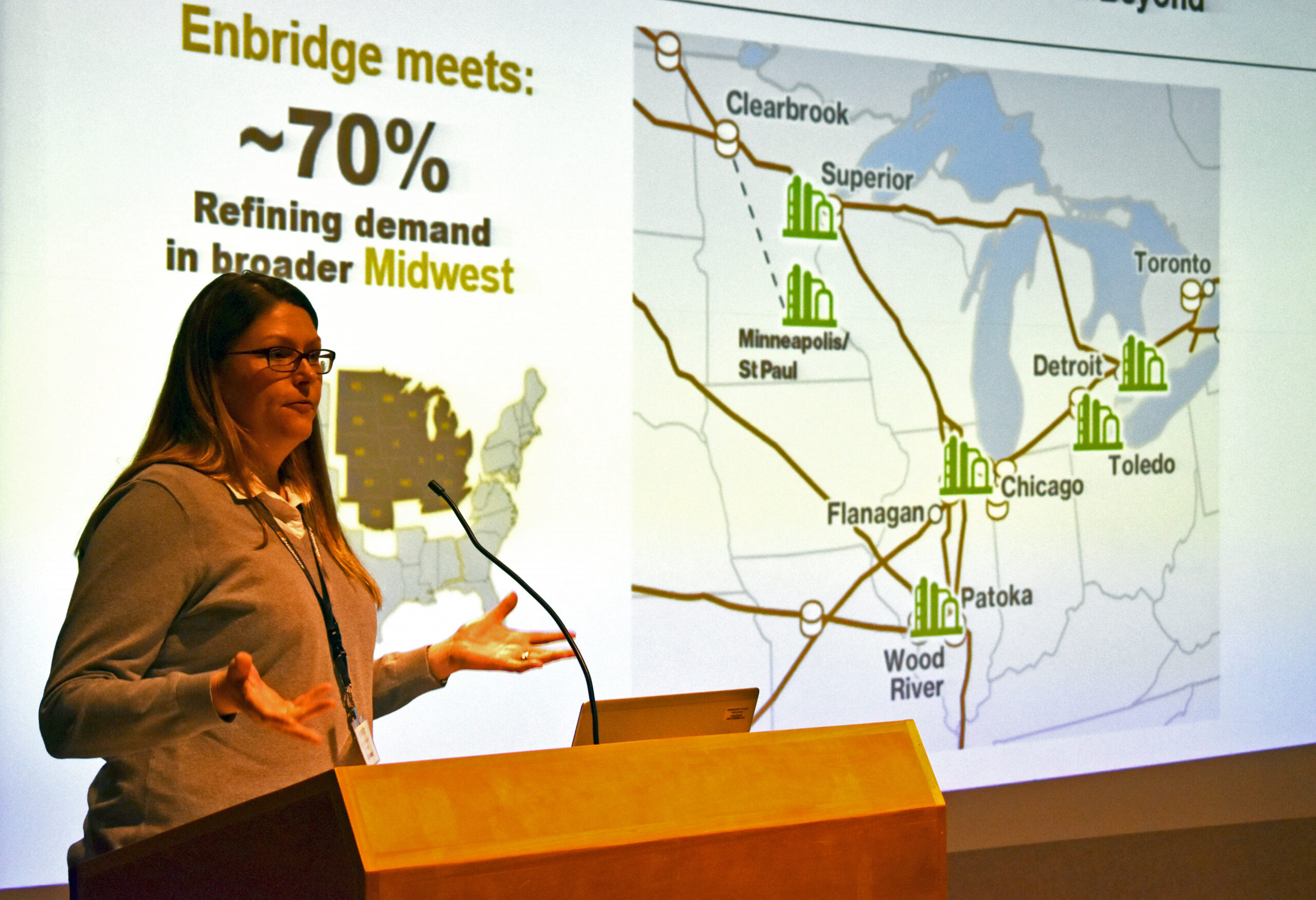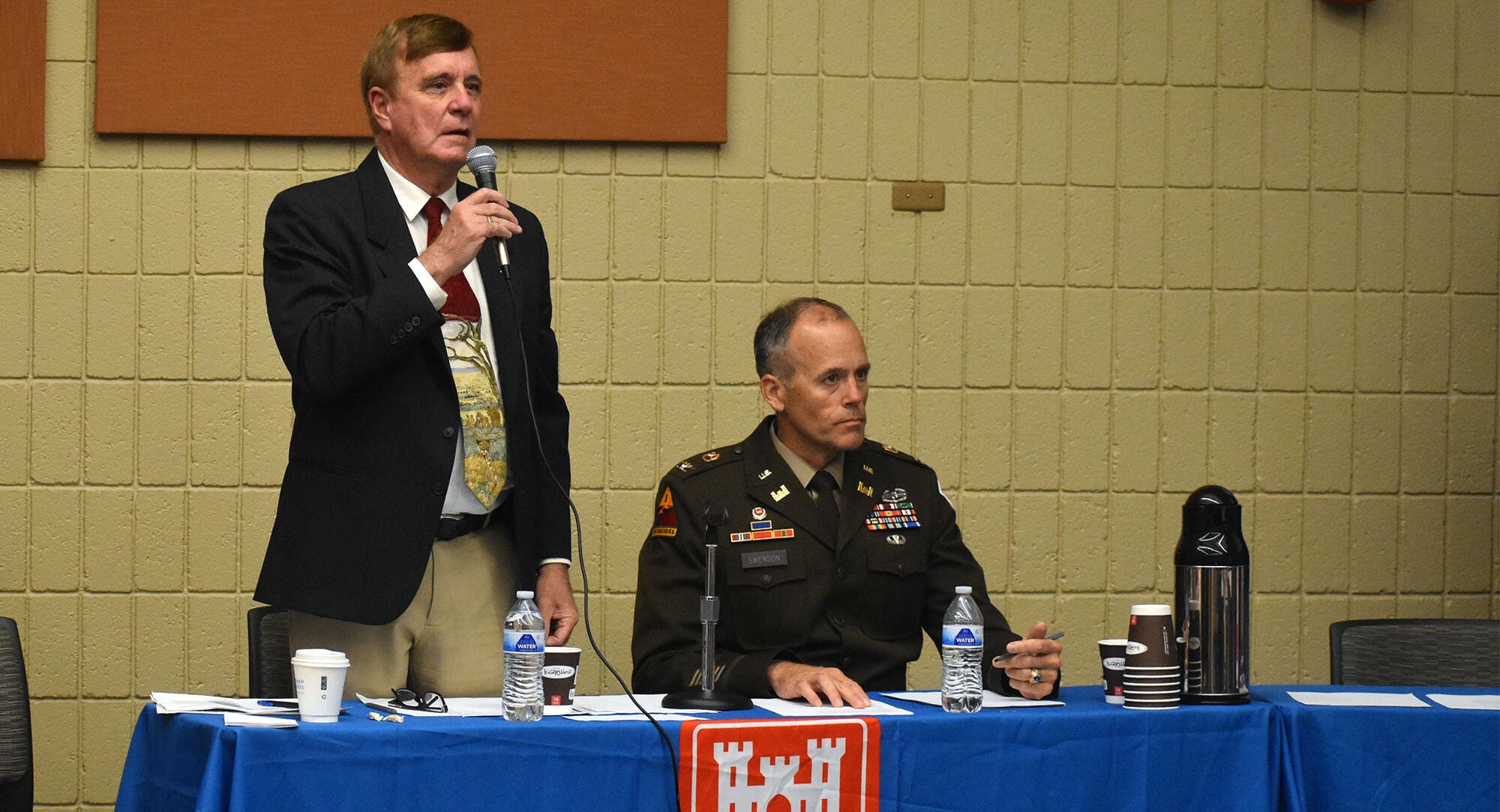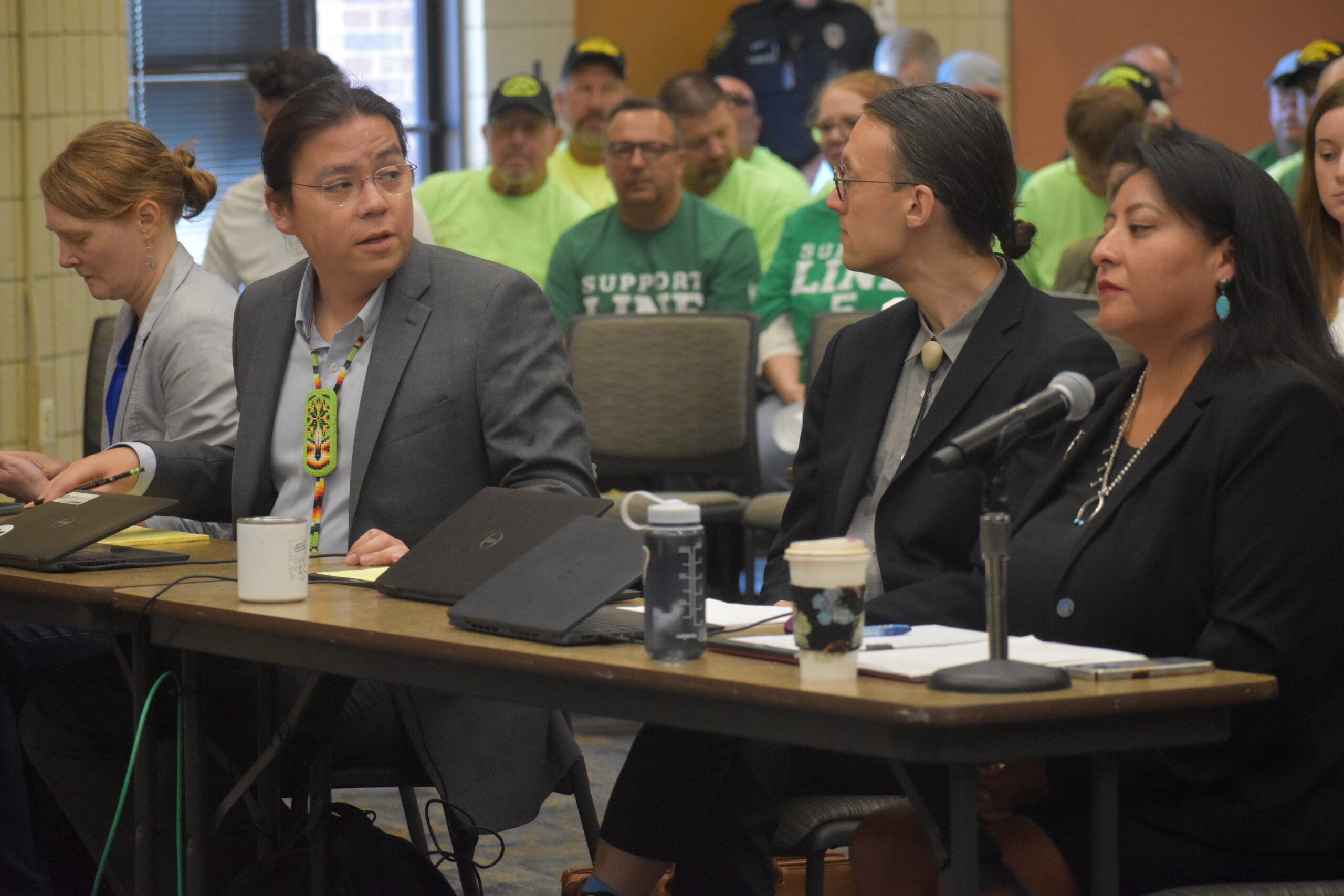An intertribal agency says the state’s draft environmental review of a Canadian firm’s $450 million plan to reroute an oil and gas pipeline across northern Wisconsin is incomplete and flawed.
The Wisconsin Department of Natural Resources released its draft environmental impact statement on Thursday for a roughly 40-mile reroute of Enbridge’s Line 5 in Ashland and Iron counties. The pipeline carries up to 23 million gallons of oil and natural gas liquids per day from Superior to Sarnia, Ontario.
Enbridge wants to move the pipeline after the Bad River Band of Lake Superior Chippewa sued the company in 2019 to shut down and remove Line 5 from the tribe’s reservation.
News with a little more humanity
WPR’s “Wisconsin Today” newsletter keeps you connected to the state you love without feeling overwhelmed. No paywall. No agenda. No corporate filter.
The company’s proposed route is expected to cross nearly 200 waterbodies and temporarily affect 135 acres of wetlands. Enbridge maintains the nearly 70-year-old pipeline serves as a vital link to fuel across the region.
The Great Lakes Indian Fish and Wildlife Commission, which represents 11 Ojibwe tribes, told the DNR in a Dec. 10 letter that the state’s review has significant gaps in information.
The commission’s environmental section leader John Coleman and environmental specialist Esteban Chiriboga said the draft released Thursday lacks adequate data to support the impacts of any oil spill to downstream waters, including Lake Superior. They said it also fails to assess compliance with the Bad River tribe’s water quality standards or combined impacts of other projects.
“There really needs to be a thorough description of the risks being posed by putting this pipeline around the reservation … and Enbridge does not have a great history with spills,” said Coleman.
Enbridge was responsible for one of the nation’s largest inland oil spills in July 2010, which cost more than $1.2 billion to clean up. More recently, Minnesota regulators fined the company $3 million for failing to follow the state’s environmental laws after Enbridge pierced a groundwater aquifer during construction of Line 3, releasing at least 24 million gallons of water.
“This was a topic that was brought up time and time again, recognizing that Red Cliff specifically has a huge reliance on commercial fishing,” said Noah Saperstein, environmental justice specialist for the Red Cliff tribe. “Not to mention, the cultural connection that the community has with the lake.”
Line 5 has had around 30 spills that have released more than 1 million gallons of oil and natural gas liquids on land since 1968, according to federal pipeline safety data obtained by the National Wildlife Federation.
The draft review states an oil spill to nearby surface waters like the Bad River would temporarily impair water quality for weeks to months. The analysis said it’s unlikely a large oil spill would reach the lake “since much would become trapped in sediments and vegetation at the river bottom, along stream and riverbanks and in wetlands before reaching this far downstream.”
The commission added the agency’s review appears to exclude alternatives based on Enbridge’s analysis, includes problems with reference to treaty rights along the route, lacks sections on water quality, and details incorrect route location and mapping.
Ben Callan, the DNR’s integration services section chief, declined to comment on the commission’s remarks. He noted the agency intends to review all comments to update, clarify or correct any information.
“That’s the exact reason why we have a public engagement process associated with this. We want to get it right,” said Callan. “And, so if there’s something in there that anybody identifies that they think is inaccurate or incomplete, that’s the information that we want.”
The DNR contracted with TRC Environmental Corporation to help prepare the draft environmental impact statement. The state’s review identified federal and state endangered species in the project area, as well as high quality waterways and wetlands.
The Kakagon and Bad River Sloughs, which comprises 16,000 acres of internationally recognized wetlands, lie downstream of the proposed reroute. Federal officials say the sloughs are home to the largest wild rice bed on the Great Lakes.
The project is expected to include blasting and drilling within wetland and water crossings to install the pipeline. The proposed route would also pass within several miles of three state natural areas and come within a half-mile of Copper Falls State Park.
Tribes, environmental groups and residents have expressed concerns about the pipeline’s contribution to climate change as scientists urge drastic cuts in carbon emissions. They’ve highlighted more extreme storms in the region that caused three floods in the last decade.
“There’s a consensus, right, that we need to reduce our reliance on fossil fuels, if not immediately, at least over time, and wean ourselves off,” said Rob Lee, staff attorney with Midwest Environmental Advocates. “We don’t accomplish that by continuing to build new oil pipeline infrastructure.”
Enbridge has pledged to reach net-zero carbon emissions by 2050. The draft review considered greenhouse gas emissions from project construction and not continued operation of the line, saying any emissions from the reroute would be insignificant.
The company said in a statement Friday that it’s pleased the reroute is moving forward.
“Agreement has been reached with all private landowners along the 40-mile (reroute), chosen because it minimizes environmental impacts and protects critical resources,” wrote Michael Barnes, an Enbridge spokesperson. “We will move forward with construction once all necessary permits are received.”
Labor unions and the state’s largest business lobby have backed the project and argued the line’s shutdown would negatively impact businesses and residents in Wisconsin. They’ve highlighted the 700 jobs it would bring.
“They’ll all be Wisconsin workers or at least a good majority of them, and that equates to $135 million back into the Wisconsin economy,” said Terry McGowan, president of the International Union of Operating Engineers Local 139 in Wisconsin.
Wisconsin drew $36.5 million in property tax revenues from Enbridge pipelines and facilities last year, according to the company.
Enbridge is currently fighting efforts by the state of Michigan to shut down Line 5 in the Great Lakes. The pipeline provides around 65 percent of the propane supplied to residents in Michigan’s Upper Peninsula and around 55 percent of the state’s propane fuel. Opponents of the reroute note very little of that fuel is used to heat homes or businesses in northern Wisconsin.
Enbridge must obtain permits from multiple state and federal agencies. The DNR is currently accepting public comment on the proposed reroute. A public hearing will be held on Feb. 2.
Wisconsin Public Radio, © Copyright 2025, Board of Regents of the University of Wisconsin System and Wisconsin Educational Communications Board.





